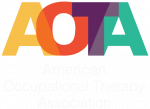Student FAQ: Program Accreditation Status
During a period of Probationary Accreditation, programs are accredited, and graduates are eligible to take the NBCOT certification exam.
If a program is not in compliance with one or more ACOTE Accreditation Standards, ACOTE may change a program’s status to Probationary Accreditation for any of the following reasons:
- The areas of noncompliance may impact the program’s capability to provide acceptable educational experiences for the students.
- The program has failed to document significant progress toward compliance with one or more cited areas of noncompliance.
- The program is in jeopardy of having its accreditation status withdrawn due to the mandated time limit for carrying areas of noncompliance.
Click on “Disclosure Statement” under the program listing to obtain more information about the reasons that the program was placed on Probationary Accreditation status.
There is NO mandate regarding OT doctoral-degree-level education. Institutions can decide to transition the occupational therapy program to the doctoral degree level, remain at the master’s degree level, or offer both degree options. For more information email accred@aota.org.
There is NO mandate regarding OTA associate-degree-level education. Institutions can decide to transition the occupational therapy assistant program to the baccalaureate degree level, remain at the associate’s degree level, or offer both degree options. For more information email accred@aota.org.
This term refers to new programs that are not yet accredited but have completed the first step in the 3-step initial accreditation process. New programs seeking initial accreditation must submit a Candidacy Application to ACOTE. The application is reviewed and ACOTE must take action to either grant or deny Candidacy Status (step 1). Not all programs are successful in obtaining Candidacy Status, and that status must be attained before students can be admitted into the program. Although the “Candidacy Status” designation does not guarantee that the program will be accredited, it indicates that the resource allocation and plan for development of the proposed program appear to demonstrate the ability to meet ACOTE Standards. After a program is granted Candidacy Status, the program will submit a Report of Self-Study for review by ACOTE (step 2) and will have an on-site evaluation (step 3).
This term refers to new programs that are not yet accredited but have completed the first and second steps in the 3-step initial accreditation process. Although the “Preaccreditation Status” designation does not guarantee that the program will be accredited, it indicates that on the basis of the paper review of the submitted materials, the program would appear to meet ACOTE Standards if fully implemented in accordance with the plans of the sponsoring institution. An on-site evaluation (step 3) will be conducted before the first class completes the academic curriculum. If the program can successfully demonstrate substantial compliance with the Standards, it will be granted accreditation. If not, accreditation will be withheld.
There is risk involved in entering a program that is not fully accredited. When a program fails to obtain accreditation before the first class of student graduates, the program is no longer viable and closes. One must graduate from an ACOTE-accredited program to be eligible to take the NBCOT certification examination.
The students will earn the course/credit hours completed but are not eligible to take the NBCOT certification examination. To be eligible for the NBCOT certification examination, students will need to transfer and graduate from an ACOTE accredited program. Credits may or may not be accepted by another program.
Occasionally there is a program that is not successful in obtaining accreditation. Students should speak with the director of any new program regarding accreditation status.

